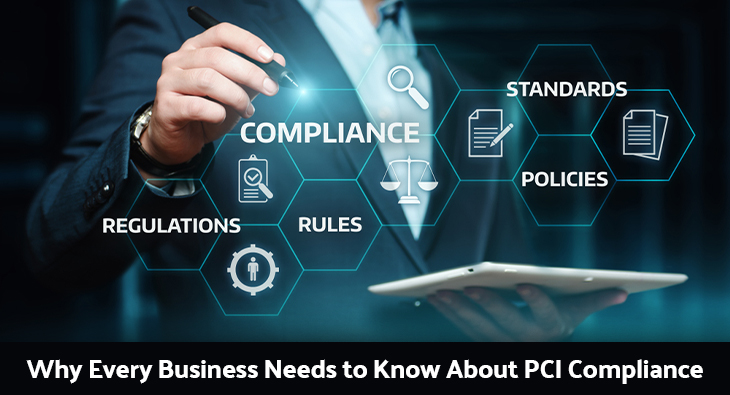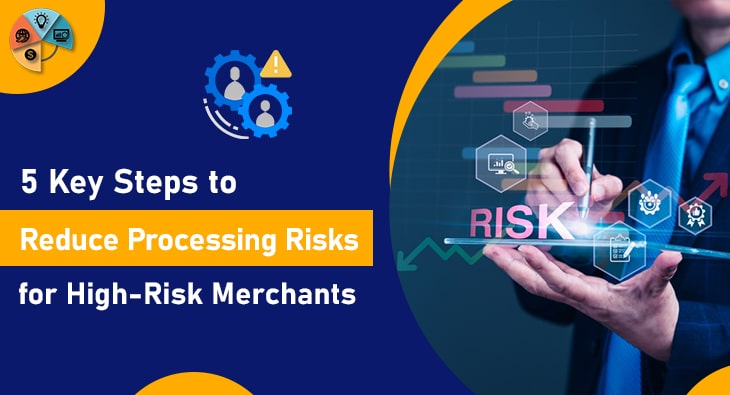PCI Compliance is an important security requirement that every business should understand and adhere to. The Payment Card Industry Data Security Standard (PCI DSS) is a set of comprehensive requirements that ensure any business that processes, stores, or transmits credit card data keeps it secure. PCI Compliance helps protect customers from fraud and theft and also protects the business from potential financial losses due to data breaches. In this blog post, we will look at why every business needs to be aware of and understand PCI Compliance.
What is PCI Compliance?
PCI Compliance refers to the Payment Card Industry Data Security Standards (PCI DSS). That businesses are required to adhere to in order to securely accept and process credit and debit card payments. PCI Compliance helps ensure the security of customer payment data and reduces the risk of fraud and data breaches.
PCI Compliance is not a law or regulation. But a set of standards established by the Payment Card Industry Security Standards Council (PCI SSC). These standards outline best practices for handling sensitive payment data and maintaining secure payment environments. The standards are updated regularly to stay current with new technology and evolving threats to payment security.
PCI Compliance applies to any organization that accepts payment cards, regardless of the size or volume of transactions. This includes merchants, service providers, and processors who handle payment data on behalf of others.
Achieving and maintaining PCI Compliance requires a significant investment of time and resources. Including implementing security measures such as encryption, access controls, and monitoring systems. However, the benefits of compliance outweigh the costs by reducing the risk of data breaches, protecting the reputation of your business, and maintaining customer trust.
Some Related Blogs
- Tips for Finding the Right Payment Gateway for Your Business
- Benefits of Having a CBD Oil Merchant Account for Your Business
- The Ultimate Guide to Auction Merchant Accounts
- Understanding Gas Station Credit Card Processing Fees and Charges
Who Needs to Be PCI Compliant?
Any business that accepts credit card payments must be PCI compliant. This includes retailers, restaurants, hotels, online businesses, and any other business that accepts credit cards as payment.
Additionally, if your business stores or processes cardholder data, you must comply with the PCI Data Security Standard (DSS). This applies to all businesses, regardless of their size or the volume of credit card transactions they process.
It’s important to note that even if your business outsources credit card processing to a third-party vendor. You’re still responsible for ensuring that the vendor is PCI compliant. This is known as shared responsibility, and it’s your responsibility as the merchant to ensure that all aspects of your credit card transactions are secure and in compliance with PCI DSS.
Why Is PCI Compliance Important?
PCI compliance is crucial for any business that handles credit card payments. Failing to comply with PCI regulations can result in hefty fines, legal penalties, and even reputational damage.
PCI compliance helps ensure that sensitive cardholder data is protected and reduces the risk of data breaches and fraud. Without PCI compliance, your business is vulnerable to hackers and cybercriminals who are looking to steal cardholder data for fraudulent purposes.
Compliance is not just a legal requirement; it is an essential part of protecting your customers’ data and maintaining their trust in your business. It is essential to understand that PCI compliance is not a one-time event but an ongoing process. Businesses need to maintain PCI compliance regularly to ensure that they continue to meet the necessary standards.

PCI compliance helps businesses stay on top of emerging threats and ensures that their payment systems are secure. It is an investment in the long-term sustainability and success of your business.
By prioritizing PCI compliance, businesses can protect themselves from the damaging consequences of noncompliance, including legal fines, lost customers, and reputational harm.
In short, PCI compliance is an essential element of any successful business that accepts credit card payments. And every business owner must be aware of its significance and take steps to achieve and maintain compliance.
The Consequences of Noncompliance
Not being PCI compliant can have serious consequences for businesses. Firstly, failing to comply with the standards could result in significant fines and penalties from card networks and regulatory bodies. In addition to the financial impact. Noncompliance can also damage a business’s reputation and lead to a loss of customer trust.
Data breaches are a significant risk for businesses that don’t adhere to PCI requirements. A breach can result in theft of cardholder data. Leading to financial losses for both the cardholder and the business. Breaches also come with a high cost for businesses in terms of legal fees, remediation expenses, and potential lawsuits. Moreover, a breach can negatively impact a business’s credit score and its ability to conduct transactions in the future.
![]()
Email us anytime!
Email customer service 24/7
![]()
Call us anytime!
Reach customer care 24/7 at +1 (727) 330-3944
Noncompliance with PCI standards can also lead to the revocation of a business’s ability to accept payment card transactions. The loss of this ability can significantly damage a business’s revenue streams and ability to conduct business as usual. The loss of this ability can also have long-term consequences for businesses that rely on the use of payment cards as a primary payment method.
In short, noncompliance with PCI standards can have significant legal, financial, and reputational consequences for businesses. It is imperative that all businesses that handle payment card data take the steps necessary to become PCI compliant and maintain their compliance. Doing so can help mitigate risks, protect customer data, and safeguard the financial health of the business.
The PCI Compliance Requirements
In order to be PCI compliant, businesses must adhere to a set of requirements that ensure that their customer’s credit card information is secure. These requirements are broken down into six categories, each with its own set of guidelines.
1. Build and Maintain a Secure Network: This requirement involves the use of firewalls and other security measures to protect cardholder data.
2. Protect Cardholder Data: This requirement involves encrypting credit card information during transmission and storage.
3. Maintain a Vulnerability Management Program: This requirement involves regularly scanning systems for vulnerabilities and taking steps to address them.
4. Implement Strong Access Control Measures: This requirement involves controlling access to systems that store cardholder data.
5. Regularly Monitor and Test Networks: This requirement involves monitoring systems for unauthorized access and conducting regular penetration testing.
6. Maintain an Information Security Policy: This requirement involves developing and implementing a policy for securing cardholder data.
In addition to these requirements, businesses must also follow specific guidelines for processing and storing credit card information. Such as not storing the CVV code and limiting access to cardholder data.
Achieving and maintaining PCI compliance can be a complex and ongoing process. But it is essential for businesses that process credit card transactions. Failure to comply with these requirements can result in significant fines, damage to a business’s reputation, and the loss of customers’ trust. It is important for businesses to work with qualified professionals to ensure that they are following the guidelines and implementing best practices for securing cardholder data.
How to Achieve and Maintain PCI Compliance
Achieving and maintaining PCI compliance can seem daunting, but it doesn’t have to be. By following a few basic steps, your business can ensure that it stays compliant with the standards and avoids costly consequences.
1. Assess Your Risks:
The first step to achieving PCI compliance is to conduct a thorough assessment of your organization’s risk profile. This should include identifying any areas of vulnerability in your IT infrastructure and the ways in which cardholder data flows through your systems.
2. Implement Appropriate Controls:
Once you have identified the risks. You will need to implement appropriate controls to mitigate them. This may involve installing firewalls and intrusion detection systems, encrypting data, and restricting access to cardholder data.
3. Monitor Your Systems:
PCI compliance is an ongoing process, not a one-time event. To maintain compliance, you will need to monitor your systems regularly for potential vulnerabilities and implement any necessary updates or patches.
4. Educate Your Staff:
Your employees play a critical role in maintaining PCI compliance. Make sure that everyone in your organization understands the importance of protecting cardholder data and receives regular training on how to do so.
5. Validate Compliance:
Finally, you will need to validate your compliance with the standards. This involves submitting a self-assessment questionnaire (SAQ) or undergoing an onsite audit by a PCI-certified assessor.
By following these steps, you can ensure that your business stays compliant with the PCI standards and avoids the potential consequences of noncompliance. Remember, the cost of noncompliance is not just financial – it can also damage your reputation and erode customer trust. So, take PCI compliance seriously and make it a priority for your business.
For More Information Please Visit www.merchantstronghold.com, or mail us at info@merchantstronghold.com



